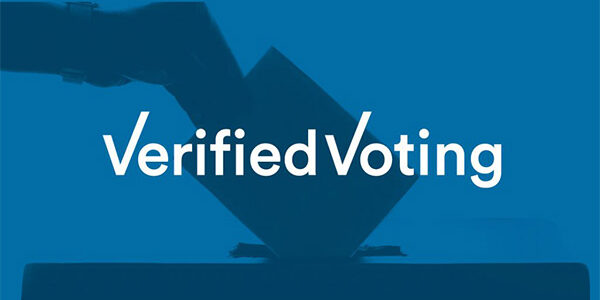March 24, 2022
Connecticut Government Administrations and Elections Committee
Legislative Office Building, Room 2200
Hartford, CT 06106
Via email
RE: Common Cause Rhode Island and Verified Voting Comments on Senate Bill 472 Dear Committee Members:
On behalf of Common Cause Rhode Island and Verified Voting, we submit these comments on Senate Bill 472, which would require risk-limiting audits in Connecticut. Both organizations have actively promoted voter-verified paper ballots and routine, rigorous post-election audits – especially risk-limiting audits – to check the accuracy of computerized voting systems.
While SB 472 seeks to implement the recommendations of the state’s risk-limiting audits working group, we have grave concerns about whether the bill provides a viable path to effective implementation of risk-limiting audits (RLAs) in Connecticut. Given the limited time remaining in the legislative session, we advise that the bill be postponed. The bill, as it stands, requires significant revisions to provide sound definitions of key elements, to clarify requirements, and to allow ample planning and preparation.
The bill currently lacks sound definitions of central concepts:
- “Comparison risk-limiting audit[s]” are nominally required, but are nowhere defined. The bill does not clearly require manual inspection of ballot s, nor does it require that all types of ballots be potentially subject to audit. Both are crucial requirements of RLAsl
- “Risk limit” – a central concept of RLAs – is incorrectly defined. Properly defined, the risk limit is the maximum chance that the audit would fail to detect a tabulation error that alters the election outcome. In the bill, it appears to refer to the maximum chance of failing to detect any error in tabulator counts. (Relatedly, the definition of “discrepancy” for RLAs implies a different incorrect definition of “risk limit.”)
While the bill omits some key requirements of RLAs, it appears to impose other perplexing and burdensome requirements:
- Read in the context of the working group report, the bill appears to assume that before audits begin, ballots throughout Connecticut will be retabulated using audit stations or tabulators that can imprint ballots (see report section 6.2). No state has ever retabulated all its ballots in a manner appropriate to support a ballot comparison RLA. Municipalities do not currently have the equipment to conduct the retabulation, much less procedures in place to do
- Even assuming that a full retabulation is feasible, the requirement in (d)(1) to “manually batch the paper ballots to be audited in groups of not greater than fifty per batch” before commencing an audit is dangerously prescriptive. While the working group pilots used this batch size, we see no basis to prescribe it in law. Moreover, the working group report suggests a new RLA method, so-called “lazy ballot comparison,” that could make much of this work unnecessary. Wherever possible, operational details of audits should be specified in procedures prescribed by the Secretary of the State, as per (d)(3).
- According to section (a)(1)(B) of the bill, an RLA is required to be conducted “in not less than five per cent of the voting districts in the state”; section (b)(1) mandates that the voting districts be randomly selected. This language could be read to require hand counts of all the ballots in the randomly selected districts. Even if that interpretation is unintended, the ballot comparison audits recommended by the working group involve random samples of ballots, not of voting districts.
Finally, the bill is staggeringly ambitious in the immediacy and breadth of its requirements. As drafted, it would apply to all federal elections effective July 1, 2022, presumably beginning with the primary elections in August. Also, it would cover a swath of statewide and legislative contests including at least 5% of all statehouse contests. The scope of contests covered would push the state toward retabulating all the machine-counted ballots using special procedures, as described above – but, again, no state has ever undertaken this kind of retabulation, much less done so within months in reaction to a legislative mandate. We fear that such a mandate asks too much, too soon, of municipal registrars who already have many responsibilities.
We recommend that you consider putting this bill off entirely, which would allow more time for consultation with Connecticut registrars, and RLA experts and practitioners around the country, about the best path forward. Alternatively, the committee may want to consider a narrower bill, perhaps one that provides for a larger-scale pilot following the November election as a step toward requiring RLAs in the future.
We thank you for considering these comments. We would be pleased to consult with you on detailed revisions to this or other RLA legislation.
John Marion, Executive Director
Common Cause Rhode Island
Mark Lindeman, Director
Verified Voting
